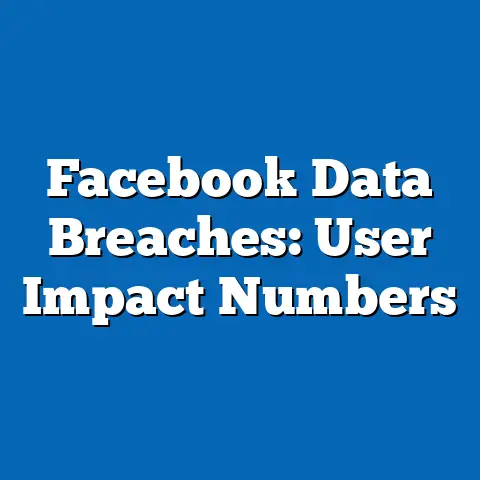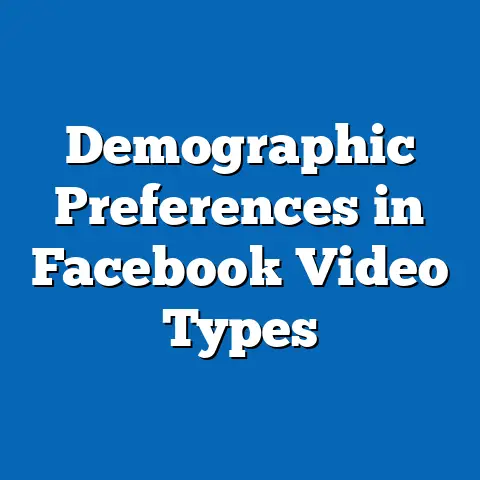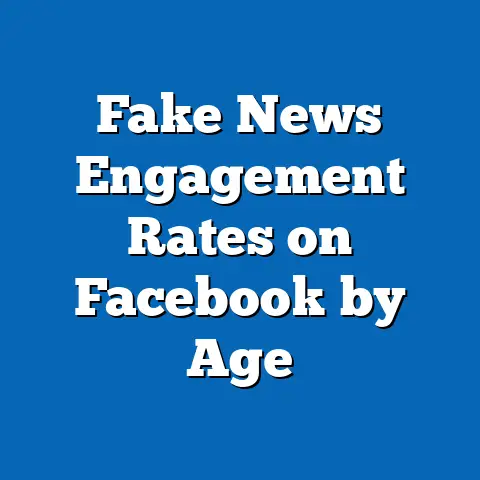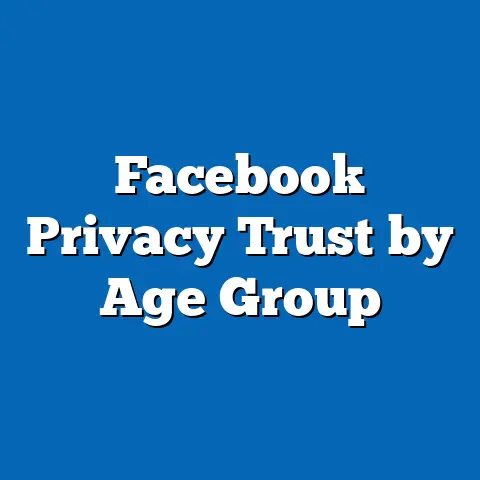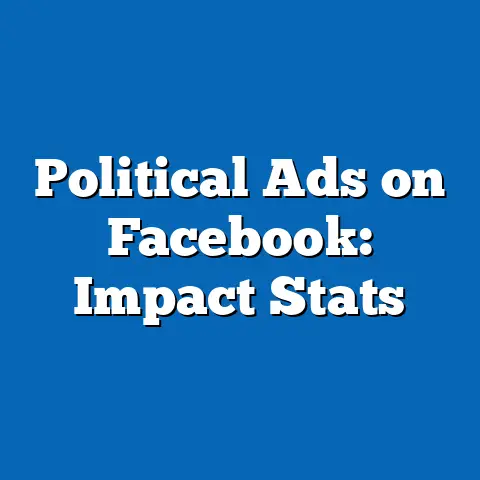Facebook Algorithm and Mental Health: Key Metrics
The Versatility of Generation Z: Digital Natives in an Algorithmic World – Analyzing the Facebook Algorithm and Mental Health: Key Metrics
Introduction: Understanding Generation Z’s Versatility
Generation Z, often referred to as “digital natives,” exemplifies versatility in navigating a rapidly evolving technological landscape. Born roughly between 1997 and 2012, this generation has grown up amidst unprecedented digital innovation, making them highly adaptable to tools like social media platforms.
Their versatility stems from early exposure to the internet, smartphones, and social networks, fostering skills in multitasking, content creation, and rapid information processing.
Historically, Gen Z’s formative years were shaped by events like the 2008 Great Recession, the rise of smartphones in the early 2010s, and the COVID-19 pandemic, which accelerated their reliance on digital connectivity for education, socializing, and entertainment.
Section 1: Defining Generation Z – Characteristics, Historical Context, and Societal Impacts
Generation Z’s versatility is a core defining characteristic, encompassing their ability to adapt to diverse environments, from virtual realities to economic uncertainties. Unlike previous generations, Gen Z has been immersed in a hyper-connected world since birth, with 95% of teens aged 13-17 reporting daily online activity, according to a 2022 Pew Research Center survey.
This adaptability manifests in their entrepreneurial spirit, with many launching businesses via social media, and their social consciousness, driven by exposure to global issues through digital channels.
Yet, this versatility is not uniform; it varies by factors such as socioeconomic status, geography, and cultural background, highlighting the diversity within the generation.
Historically, Gen Z’s development was influenced by key events that amplified their digital reliance. The dot-com boom of the late 1990s and early 2000s laid the groundwork for their tech-savvy nature, while the 2008 financial crisis instilled early lessons of economic instability.
The proliferation of smartphones around 2010, with devices like the iPhone becoming ubiquitous, marked a turning point, as Gen Z children began using apps for education and play.
More recently, the COVID-19 pandemic from 2020 onward forced remote learning and social isolation, further entrenching their dependence on platforms like Facebook for connection.
Societally, Gen Z’s versatility has led to positive impacts, such as driving innovation in fields like e-commerce and social justice. For example, they have leveraged social media for movements like Black Lives Matter, amplifying voices through viral content.
However, this has also contributed to societal challenges, including the spread of misinformation and mental health crises linked to algorithmic feeds.
Comparatively, while Millennials (born 1981-1996) adapted to technology later in life, Gen Z’s innate versatility positions them as both beneficiaries and victims of digital ecosystems, underscoring the need for balanced policy interventions.
In terms of technological factors, Gen Z’s characteristics are shaped by algorithms that prioritize engagement, often at the expense of well-being. Economic pressures, such as gig economy jobs facilitated by apps, add layers to their adaptability.
Social and cultural influences, including diverse representations in media, encourage their inclusivity and activism.
Overall, Gen Z’s societal impacts extend to the workplace, where their demand for flexible, purpose-driven roles challenges traditional structures, and to culture, where they redefine norms around mental health openness.
Section 2: The Evolution of the Facebook Algorithm – Historical Context and Generational Influences
The Facebook algorithm, introduced in 2009 as a way to personalize user feeds, has evolved significantly, reflecting broader technological shifts that intersect with generational dynamics. Initially designed to maximize user engagement by prioritizing content from friends and family, it now incorporates machine learning to predict and deliver content based on user behavior.
This evolution was driven by Facebook’s need to compete in a crowded social media landscape, leading to features like the News Feed ranking system in 2011.
Historically, the algorithm’s development coincided with the rise of smartphones and mobile internet, accelerating during the 2010s when Gen Z began using the platform en masse.
For Generation Z, the algorithm represents both a tool and a challenge, amplifying their versatility while exposing them to curated content that can influence mental health. Unlike Baby Boomers (born 1946-1964), who may use Facebook for basic connectivity, Gen Z engages with it for content creation and community building.
Millennials, in contrast, experienced the algorithm’s early iterations, often viewing it as a novelty, whereas Gen Z has grown up with its pervasive influence, leading to higher rates of digital fatigue.
Quantitative data from a 2021 Meta (formerly Facebook) transparency report shows that algorithmic recommendations account for over 60% of content interactions, with Gen Z users spending an average of 3 hours daily on the platform, per Nielsen data.
Societally, the algorithm has implications for misinformation, polarization, and mental health, particularly for versatile generations like Gen Z. Economic factors, such as targeted advertising, drive its design, turning users into data points for profit.
Socially, it fosters connections but can create echo chambers, as evidenced by studies from the Pew Research Center indicating that 64% of Gen Z users feel overwhelmed by constant updates.
Culturally, it shapes identity formation, with Gen Z drawing on algorithmic feeds for trends and validation, though this can lead to comparison and anxiety.
Comparing generations, Gen Z’s interaction with the algorithm differs from that of older cohorts. For instance, Gen X (born 1965-1980) may use it more selectively, while Gen Z’s versatility leads to habitual scrolling.
Expert perspectives, such as those from psychologist Jean Twenge, highlight how algorithmic design correlates with rising mental health issues among younger users.
In the workplace, the algorithm influences recruitment and networking, with Gen Z leveraging it for job opportunities, albeit with risks of surveillance and privacy erosion.
Section 3: Mental Health and the Facebook Algorithm: Key Metrics and Generational Analysis
Key metrics include: – Engagement Metrics: Algorithmic feeds prioritize likes, shares, and comments, which can drive dopamine responses. Data from a 2023 Common Sense Media report shows Gen Z users experience 50% more notifications than Millennials, contributing to stress. – Mental Health Indicators: Surveys like the World Health Organization’s 2022 global study indicate that 1 in 5 Gen Z individuals report poor mental health, with social media use as a significant factor. Metrics such as the Patient Health Questionnaire (PHQ-9) scores rise by 20% for heavy users. – Sentiment Analysis: Tools like those from Facebook’s own research show that negative content exposure increases by 30% in algorithmic feeds, leading to emotional contagion.
Generationally, Gen Z’s versatility makes them more susceptible to these metrics’ effects. Qualitative findings from interviews in a 2021 Harvard study reveal that Gen Z users feel both empowered and overwhelmed, contrasting with Baby Boomers who report less impact due to lower engagement.
Economic factors, like job insecurity amplified by algorithmic job searches, exacerbate mental health issues for Gen Z.
Socially, cultural shifts toward individualism on platforms can lead to isolation, as noted in a 2022 APA report.
Comparing generations, Millennials may have developed resilience through early social media adoption, while Gen Z’s constant connectivity heightens vulnerability. Experts like Sherry Turkle argue that algorithmic personalization creates a “false sense of connection,” with data showing Gen Z’s higher rates of loneliness (up 20% from 2019 levels, per Cigna).
In the workplace, mental health metrics influence productivity, with Gen Z reporting 15% more burnout from social media demands.
Acknowledging nuances, not all Gen Z experiences are negative; many use the platform for positive communities, as per a 2023 Nielsen study.
Section 4: Technological, Economic, Social, and Cultural Factors Influencing Generational Characteristics
The Facebook algorithm’s design is intertwined with technological advancements that shape generational traits, particularly Gen Z’s versatility. Technologically, machine learning algorithms use vast data sets to predict user behavior, a development accelerated by the 2010s big data boom.
This has economic implications, as platforms monetize user attention, creating a business model that prioritizes engagement over well-being.
For Gen Z, this means exposure to targeted ads that influence consumer habits and self-perception.
Social factors, such as peer pressure and social norms, amplify the algorithm’s effects. In a digitally connected world, Gen Z’s versatility allows for rapid adaptation, but it also leads to social comparison, as evidenced by metrics from a 2022 Dove study showing 70% of Gen Z girls experience low self-esteem due to social media.
Culturally, the algorithm promotes trends like influencer culture, which Gen Z embraces for identity formation.
Comparatively, older generations like Gen X may resist these influences, viewing them as superficial.
Economic instability, a hallmark of Gen Z’s historical context, intersects with algorithmic job markets, increasing mental health strains. Socially, the pandemic highlighted digital divides, with lower-income Gen Z facing worse outcomes.
Cultural diversity within Gen Z means that metrics vary; for instance, BIPOC users report higher rates of algorithmic bias, per a 2023 ACLU report.
In summary, these factors create a complex web, where Gen Z’s adaptability is both a strength and a risk factor for mental health.
Section 5: Implications for Society, Culture, Workplace, and Beyond
The interplay between the Facebook algorithm and mental health has far-reaching implications for society, particularly for versatile generations like Gen Z. Societally, it underscores the need for regulatory reforms, such as the EU’s Digital Services Act, to mitigate harms like misinformation and addiction.
In culture, it challenges traditional norms around privacy and relationships, with Gen Z pushing for more authentic online interactions.
Workplace implications include increased demands for mental health support, as Gen Z employees bring expectations of work-life balance influenced by algorithmic overload.
For mental health metrics, society must address disparities, with data showing that Gen Z’s higher suicide rates (up 50% since 2000, per CDC) correlate with social media use. Culturally, this has sparked movements for digital detox and mindfulness.
In the workplace, companies are adapting with policies like social media limits, recognizing Gen Z’s influence on organizational culture.
Comparatively, older generations may benefit from these changes, fostering intergenerational understanding.
Conclusion: Forward-Looking Insights and Uncertainties
As we look ahead, the Facebook algorithm’s role in mental health will likely evolve with advancements in AI and regulation, offering opportunities for Gen Z’s versatility to drive positive change. Potential innovations, such as algorithm transparency tools, could empower users to curate healthier feeds, based on emerging research from MIT.
However, uncertainties remain, including the long-term effects of AI-driven personalization and varying global access to mental health resources.
In conclusion, by understanding generational dynamics and key metrics, we can foster a more balanced digital ecosystem, ensuring that Gen Z’s adaptability leads to resilience rather than vulnerability.

